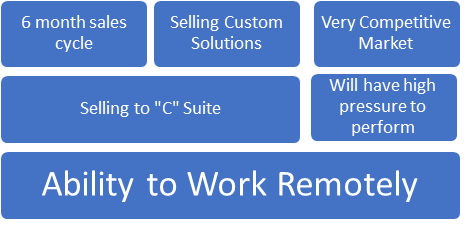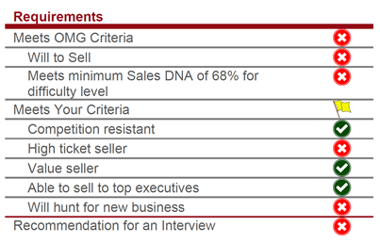Making a job offer that a candidate can’t refuse, needs to think over, or can use to get a better deal from their current employer can be a difficult task.
In the 8th blog of our series No Assembly Required Hiring, we discuss how to properly set up the offer meeting to help improve the probability of getting a yes from your sales candidate.

Whenever someone asks me what my favorite movie is, my immediate response is Rocky. What is probably a better movie, and always in the discussion about best movies ever, is The Godfather.
There are so many great and quotable scenes, but one of the most memorable is when young Michael Corleone explains to his girlfriend Kay Adams how Frankie Fontaine became a star because he got a part in a movie that the director didn’t want to cast him in. His response was, “My father made him an offer he couldn’t refuse.”
That is one of the secrets to getting candidates to accept your offer, as well as the following 6 keys.
- Make them an offer they can't refuse. You can only do that if you know what they will say yes to. Here is what you do:
- Ask and discuss their criteria that must be met in a new opportunity
- Prioritize the criteria. One of the criteria will always be money and associated benefits, title, expenses, contract terms, and conditions. Get all of this out on the table early. Let's call this table stakes. If you can't meet the table stakes, get out of the game. You can't win.
- Set the expectations for the offer meeting/discussion. Assume for purposes of this article that you uncovered every single decision-making factor and two things have happened:
- They have bought your value proposition on why this is a transformational move that meets their objectives and goals
- You can meet all of their criteria
- Deal with the incumbent or current employer and rehearse for the counteroffer
- Make sure all other contenders are eliminated
- Tell the candidate that you are prepared to:
- Make an offer that meets their criteria and priorities
- Compensate them in a way that meets their financial needs, goals, and objectives
- Answer all of their questions
- Explain to the candidate that at the end of the meeting, they will be in a position to accept or decline the offer. Then ask, "what objections do you have to that process?"
You can expect any candidate to say something like, “I don’t know how I could accept an offer I haven’t seen.” That is easy. Remember, you have uncovered all of their criteria and prioritized their needs, wants, and objectives. You know what the financial requirements are, and you can meet or exceed them. You’ve made sure that they have compelling reasons to make a change and that change MUST take place. If you’ve done that and you presented an offer that meets all the criteria, what is there to think about?
There are four things they could be thinking about:
- They really can’t make a move or don’t want to make the move
- They are hiding something about the money or other criteria
- Someone has put another offer on the table, and they want to compare
- They don’t know if they can leave their current people and or join your people
Deal with these things before you consider making an offer. You will probably still want to make an offer, and you will probably let the candidate think it over. But do your best to follow these keys to make it incredibly hard for them to say no. Worst-case scenario, take a page from The Godfather.










